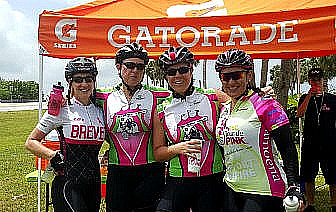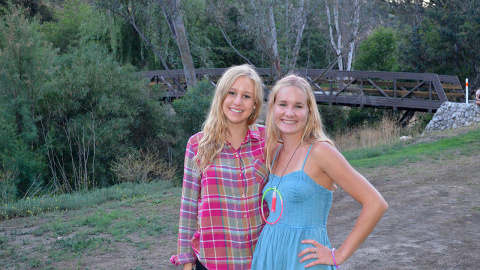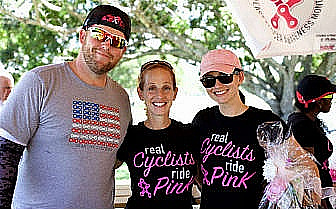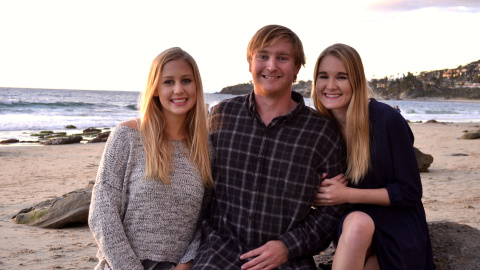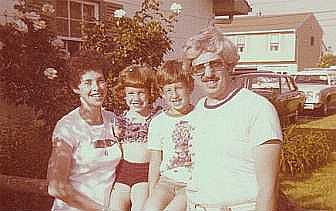- By Theresa Smith
- Posted April 22, 2016
Previvor’s Perspective – A Daughter’s Feelings
It was a year after I had tested positive for the BRCA2 gene mutation before I found out about the status of my three children. My oldest, my son, and my youngest daughter were both negative (huge relief). My middle daughter, Jenna, unfortunately tested positive for the same mutation I have. She is 23 years old now and is graduating from…
- By Eve Mart
- Posted April 19, 2016
Ride Marshaling at YSC Tour de Pink South
As I said in my last post: ”Breast cancer survivors share a connection, and I’ve come to learn that in some unconscious way by helping others, I’m helping myself to heal and spin a positive out of something that was negative.” This past weekend, I had the honor of ride marshaling at the Young Survival Coalition’s (YSC’s) inaugural…
- By Theresa Smith
- Posted April 7, 2016
What Can I Do Until My Children Can Be Tested?
Dealing with your own BRCA1 or BRCA2 genetic testing results is one thing, but worrying about testing for your children is another. Especially when they are under 18 years old. There is a very real possibility that people will have to wait for years for their kids to find out if they are positive or negative for the mutation.…
- By Jessica Profato, MS, CGC
- Posted April 5, 2016
When should my children be tested for hereditary cancer?
When I was a clinical genetic counselor, each patient that I met with for genetic counseling had some different questions about how their positive genetic test results could impact their care or that of their family members. A common theme among patients who had children was that they wanted to know if, when, and how their children should be tested…
- By Jessica Profato, MS, CGC
- Posted March 31, 2016
Patient Advocacy Groups: How Can They Help?
In several of our posts, the importance of support throughout one’s cancer journey has been discussed. Eve Mart has discussed how she received support from friends and family following her diagnosis of breast cancer, as well as her experience providing support to others. We’ve also offered thoughts from a healthcare provider’s perspective,…
- By Eve Mart
- Posted March 29, 2016
Peer Support
I hadn’t set out to be the “go-to-girl” for all things breast cancer, but when you’re faced with a challenge and come out on the other side fairing pretty well, I think people trust you. Maybe they’re just looking for positive support wherever they can, when they find themselves in a similarly difficult spot. It starts with a phone call,…
- By Theresa Smith
- Posted March 22, 2016
Hang on a Minute, Let’s Think This Through
After testing positive for a mutation in my BRCA2 gene, I was on high alert. I rushed to all my doctor’s appointments and gathered a lot of information regarding preventive surgery options. I also did a lot of research on the statistics and newer medical studies regarding BRCA1 and BRCA2. I evaluated everything based…
- By Eve Mart
- Posted March 15, 2016
Supporting Friends and Family through their Cancer Journey
I’m not sure which is more painful, fighting your own cancer battle or supporting a loved one through it. I’ve been on both sides of the fence and still cannot answer that question. Support for me came in a variety of forms and in varying degrees from virtual strangers on internet message boards, acquaintances, co-workers, friends, and family.…
- By Deepti Babu, MS, CGC
- Posted March 10, 2016
It's Complicated: Sharing Your Genetic Test Results (Original)
I feel funny writing about sharing genetic test results when I’ve never done it myself, but don’t let that stop you from reading… I’ll draw upon my years in the clinic as a genetic counselor, speaking to many families about this topic, and offer thoughts from my side of the table. I have seen that it’s complicated for some families, but…
- By Eve Mart
- Posted March 1, 2016
Being a Survivor Doesn’t Mean You Can Ignore Me
My mom was first diagnosed with breast cancer in 1989, when breast cancer was still whispered about and long before Angelina Jolie put genetic testing on the Hollywood map. My mom complied with the treatment recommended for her at the time, which included a lumpectomy, chemotherapy and radiation. Eighteen years later, in 2007, I was 34 years old…

